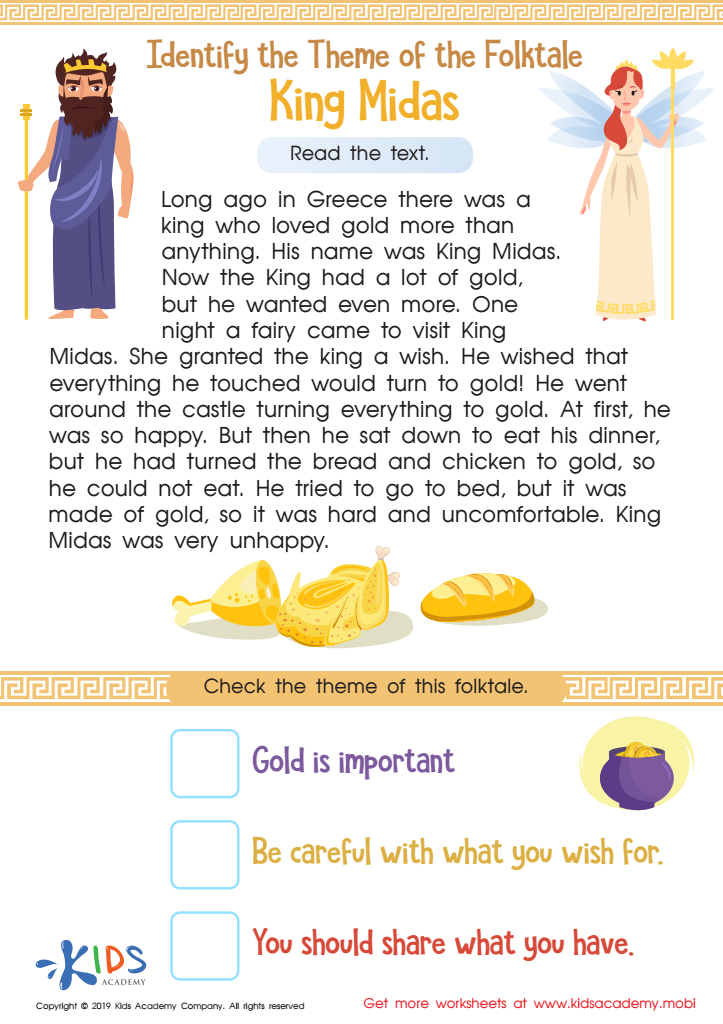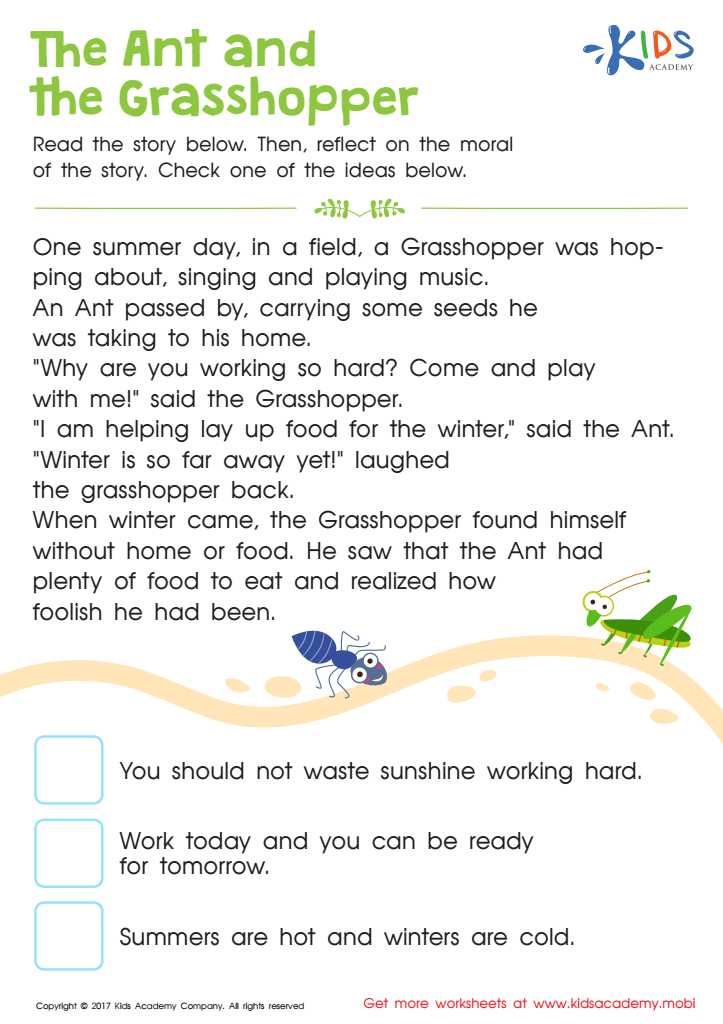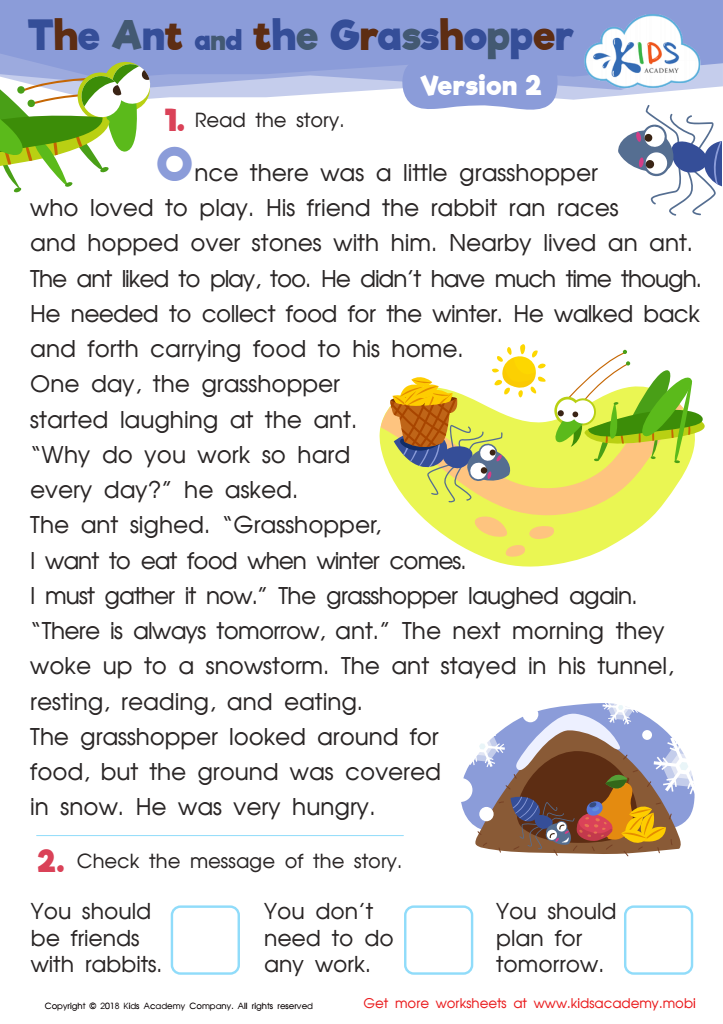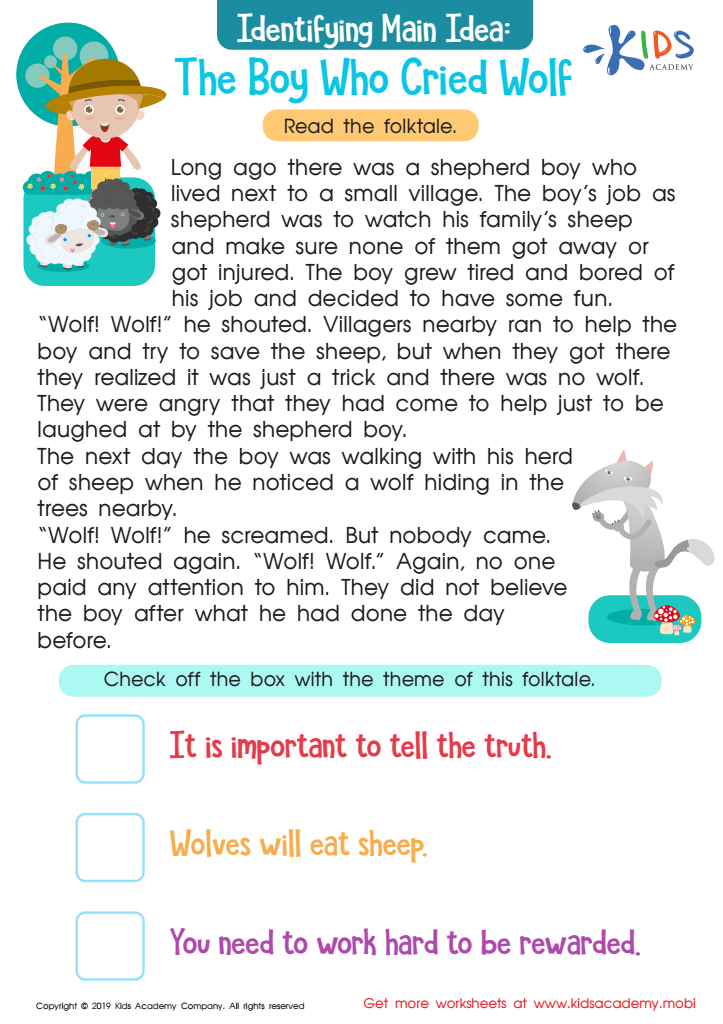Moral lesson understanding Normal Reading Fiction Worksheets for 8-Year-Olds
4 filtered results
-
From - To
Explore our engaging Moral Lesson Understanding Normal Reading Fiction Worksheets designed specifically for 8-year-olds! These worksheets help young readers grasp essential moral lessons embedded within captivating stories. Each activity encourages critical thinking and reflection on right and wrong, fostering empathy and comprehension skills. By analyzing characters' actions, discerning motivations, and discussing consequences, children develop a deeper understanding of values and ethics in narratives. Your students will not only enhance their reading abilities but also cultivate important life lessons that can guide their decisions. Dive into our collection to inspire thoughtful discussions and enrich your classroom with meaningful literary exploration!


King Midas Worksheet


The Ant and The Grasshopper Printable


The Ant and The Grasshopper Version 2 Worksheet


The Boy Who Cried Wolf Part 2 Worksheet
Understanding moral lessons in fiction is essential for 8-year-olds as it plays a pivotal role in their emotional and social development. At this age, children are navigating complex concepts of right and wrong. Engaging with stories allows them to explore ethical dilemmas and consider different perspectives, enhancing their ability to empathize with others. When parents and teachers guide children through the moral lessons in reading, they help instill values such as honesty, kindness, and respect.
Moreover, discussing these lessons encourages critical thinking and reflection. Rather than simply absorbing information, children learn to question motives and outcomes, fostering a deeper understanding of consequences. This skill translates beyond literature into real-life situations, shaping how they interact with peers and respond to challenges.
Encouraging discussions around moral lessons can also fortify parent-child and teacher-student relationships, as it opens pathways for meaningful conversations. By addressing themes of friendship, courage, and integrity, adults can support children's emotional intelligence, laying the groundwork for responsible and compassionate adulthood. Ultimately, prioritizing the understanding of moral lessons is not just about reading; it's about preparing children to navigate a complex world with a strong ethical framework.

 Assign to My Students
Assign to My Students






.jpg)








